
Trump takes credit for overturning of Roe v Wade while raising questions about DeSantis’ six-week ban
Former president Donald Trump is taking credit for the US Supreme Court overturning Roe v Wade last year by claiming he nominated the justices who did not agree with the 1973 precedent. On Tuesday night’s episode of Rob Schmitt Tonight on Newsmax, Mr Trump compared his action against abortion to Florida Governor Ron DeSantis’, saying he has done more for pro-life people. “First of all, I’m the one that got rid of Roe v. Wade and everybody said that was an impossible thing to do,” Mr Trump boasted. Mr DeSantis recently signed into law a six-week ban that prevents anyone from seeking an abortion after six weeks of gestation, with the exception of cases where ending a pregnancy would save the mother’s life. As of now, Florida allows abortions for pregnancies involving rape or incept until 15 weeks of gestation, so long as the mother can provide documentation such as a restraining order or police report. But despite Florida’s harsh move to restrict abortion access, Mr Trump believes he should be receiving more credit for the work he’s done. “What I’ve done is given the pro-life people, who are wonderful people and loving people, I’ve given them the power of negotiation. Because now they’re able to negotiate something that is going to be very important,” Mr Trump said. During his presidential term, Mr Trump nominated three Justices to the Supreme Court - Neil Gorsuch, Brett Kavanaugh and Amy Coney Barrett. All three Justices joined the majority opinion of Dobbs v Jackson last summer to help overturn Roe v Wade as well as Planned Parenthood v Casey. This returned the legality of abortions to each state individually. As of May 2023, 19 states have banned abortions either fully or restricted until a certain week of gestation, including Florida. “DeSantis, or Ron Desanctimonious as I call him, he came out with the six weeks — other people agree with and a lot of people don’t,” Mr Trump said. The former president used Mr DeSantis’ recent ban to highlight how unpopular he is with female voters — indicating the ban is too restrictive. “Ron, if you take a look, he’s losing women voters like crazy,” Mr Trump said before citing several news stories about Mr DeSantis’ unpopularity with women. The former president has been comparing himself positively to Mr DeSantis in the last few months as rumours are swirling that Mr DeSantis is preparing to announce his bid for Republican presidential candidate. “I don’t do it for the women, for the men, I do what’s right,” Mr Trump added. It is thought that Mr DeSantis could be a leading contender for Republicans, making him a possible threat to Mr Trump’s campaign. As of recently, any opportunity Mr Trump has to criticise Mr DeSantis, he takes it — as evidenced by the Newsmax interview. Mr Trump both credited himself with overturning Roe v Wade while asserting that Mr DeSantis was unpopular with women due to Florida’s six-week ban. Mr Trump has changed his opinion on abortion throughout his life. In the 1990s the former president claimed he was pro-choice but by 2015 he told reporters he was pro-life. In 2016, Mr Trump said he would have “preferred” if abortion were up to the States but accepted the federal law. After implementing the three Justices who overturned Roe v Wade last year, Mr Trump took credit for the decision. But since then, the former president has never made it clear at what point in gestation abortions should be illegal. Read More DeSantis reacts to Trump implying Florida abortion ban is ‘too harsh’ as 2024 fight heats up Abortion after 12 weeks banned in North Carolina after GOP lawmakers override governor’s veto Abortion pill case moves to appeals court, on track for Supreme Court Ivanka and Jared split over attending Trump 2024 launch – follow live Why was Donald Trump impeached twice during his first term? Four big lies Trump told during his 2024 presidential announcement
2023-05-17 22:58
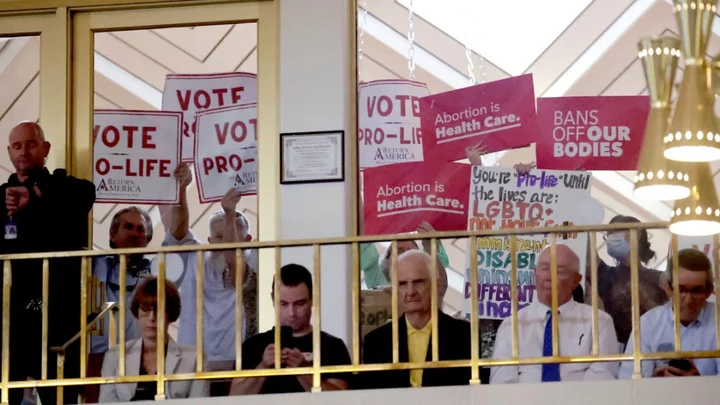
Key abortion debates this week in US courts and statehouses
Abortion opponents are trying again to implement restrictions in the latest round of court and legislative action on the divisive issue. This round of efforts centers on states that have considered bans before and a policy that's been bouncing around federal courts. Here are key things to know about the latest developments in the saga of how abortion policy will settle after the U.S. Supreme Court last year overturned Roe v. Wade and the nationwide right to abortion. PURPLE STATE POLICY Since the Dobbs ruling last year, tighter abortion restrictions have been enacted in most Republican-controlled states and protections of abortion access have gone into effect in most that are dominated by Democrats. But there hasn't been such a uniform story in the 11 states with divided government control. Virginia has kept its status quo, for instance, while Vermont has adopted a constitutional amendment to preserve abortion access and Louisiana and Kentucky have bans in place. Change came quickly in North Carolina in April when one state lawmaker flipped from Democrat to Republican, giving the GOP enough votes to override gubernatorial vetoes. Lawmakers promptly passed a ban that's less restrictive than most — allowing abortion for the first 12 weeks of pregnancy, which would be among the least restrictive of the new bans. Democratic Gov. Roy Cooper vetoed it. But lawmakers on Tuesday overrode that veto and the new law is set to take effect July 1. TRYING AGAIN ON BANS IN NEBRASKA, SOUTH CAROLINA Nebraska and South Carolina are both Republican-dominated states where GOP lawmakers have struggled to agree on the details of abortion bans. Both are considering bans this week, just weeks after earlier efforts narrowly fell short on procedural votes. And both have resurrected legislation that's less restrictive than versions that were rejected previously. In South Carolina, Republican lawmakers were divided on whether to ban abortion at all stages of pregnancy or only after cardiac activity can be detected — generally around six weeks, often before women know they're pregnant. A version of a less stringent ban is now under consideration. In Nebraska, lawmakers balked at a ban after six weeks. The unique unicameral legislature is now considering a ban on abortion at 12 weeks' gestation. It's been added to a bill that would also ban gender-affirming care for minors. RESTRICTION IN MONTANA In Montana, Gov. Greg Gianforte signed a ban Tuesday on dilation and evacuation abortions, which are normally performed in the second trimester of pregnancy. A legal challenge is expected. And it wouldn't be the first challenge on the policy in the state. A judge ruled last month that she would not block the ban preemptively, before it was signed into law. The state in 2021 adopted a broader ban on abortions after 20 weeks of pregnancy, but the state Supreme Court ruled that it will not enforce it pending a court challenge, leaving abortions by some means legal until viability, around the 24th week. COURT ARGUMENTS ON AN ABORTION PILL Most of the legal battles on abortion since the Supreme Court’s Dobbs decision in 2022 have centered on whether individual state constitutions protect the right to abortion. But one has implications nationally. An anti-abortion group sued seeking to rescind the U.S. Food and Drug Administration’s 2000 approval of mifepristone, one of two drugs used in combination in most medication-induced abortions in the U.S. A federal judge in Texas agreed. The New Orleans-based 5th U.S. Circuit Court of Appeals is hearing arguments Wednesday on the matter. In the meantime, the U.S. Supreme Court has said that mifepristone can remain on the market. It is already barred from being used in abortions, with some exceptions, in states with bans in place. An immediate response from the circuit court is unlikely. The case is expected to return to the nation’s top court eventually. The Texas-based case could be merged with one in Washington, where another federal judge ruled last month that mifepristone restrictions cannot be rolled back in a group of Democrat-led states that filed lawsuits. Read More Ukraine war’s heaviest fight rages in east - follow live Charity boss speaks out over ‘traumatic’ encounter with royal aide Arab foreign ministers welcome Syria's return to the Arab League ahead of Jeddah summit Hamas calls on Palestinians to confront Israeli victory parade in Jerusalem Tiny Amerindian village in Guyana fights gold mine in key court battle over indigenous land rights
2023-05-17 22:56
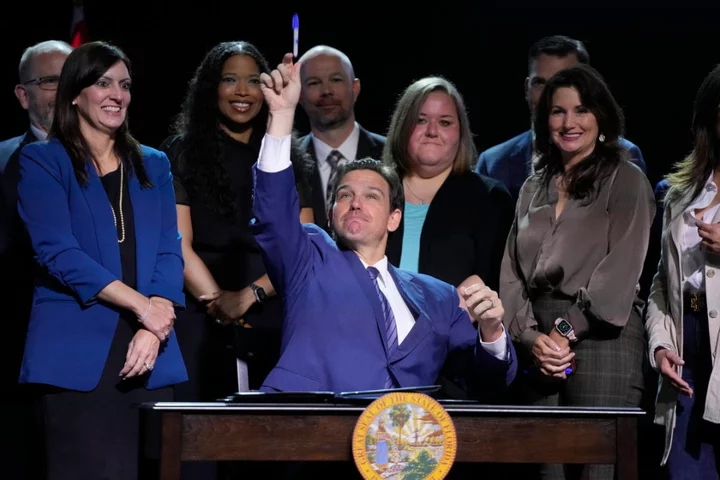
DeSantis reacts to Trump implying Florida abortion ban is ‘too harsh’ as 2024 fight heats up
Gov Ron DeSantis criticised Donald Trump on Tuesday for implying Florida's new six-week abortion ban is “too harsh,” stepping up his attacks on the former president as he prepares to challenge him for the 2024 Republican nomination. Mr DeSantis was responding to a question about Mr Trump's comments in an article published Monday by The Messenger about the six-week ban the Florida governor recently signed into law. “Many people within the pro-life movement feel that that was too harsh,” Trump told the online outlet. Mr DeSantis contended the law has widespread support among opponents of abortion and noted the former president didn't say what limits he would back on the procedure. “Protecting an unborn child when there’s a detectable heartbeat is something that almost 99 per cent of pro-lifers support,” Mr DeSantis said at a news conference in Florida, taking questions after he signed a measure to combat human trafficking. “As a Florida resident, you know, he didn’t give an answer about, ‘Would you have signed the heartbeat bill that Florida did, that had all the exceptions that people talk about?’” Mr DeSantis added. The rivalry between Mr Trump and Mr DeSantis is heating up as the Florida governor nears a decision on a 2024 presidential bid. Mr DeSantis allies believe he will launch his candidacy as soon as this week, although an announcement could come closer to the end of the month. Abortion has been an early flashpoint in the still-forming Republican primary field ahead of the first presidential election since the Supreme Court overturned Roe v Wade. The bickering showcases the GOP's ongoing internal debate over hard-line abortion restrictions, which may be popular in a Republican primary but could create problems in a general election for the party's eventual nominee. The bill signed into law last month by Mr DeSantis would ban abortions after six weeks of pregnancy. It will take effect only if the state’s current 15-week ban is upheld in a legal challenge before the state Supreme Court, which is controlled by conservatives. “Ron DeSantis is flailing in the polls and is closer to the bottom of the pack than he is to President Trump, who is dominating in every single poll,” Trump campaign Steven Cheung said when asked to respond to DeSantis' remarks. Cheung pointed out an anti-abortion group's recent characterization of Trump's presidency as “the most consequential in American history for the pro-life cause.” Mr Trump has referred to himself as “the most pro-life president in American history,” as his three nominations of conservative judges to the Supreme Court paved the way for the end of legalized abortion nationwide. But in the early months of his 2024 bid, Mr Trump has often sidestepped the issue of abortion, even as Republicans across the country celebrate the Supreme Court decision stripping federal constitutional rights to the practice. In Iowa in March, he repeatedly refused to say whether he would support a federal law restricting abortion in every state — a move that anti-abortion activists have been demanding of the GOP’s presidential contenders. “We’re looking at a lot of different things," he said when asked by The Associated Press whether he supports a federal abortion ban. Last week during a primetime CNN town hall in New Hampshire, Mr Trump continued to avoid specifics on a national ban, repeatedly saying he would “do what’s right,” without specifying what that was. As he gets closer to an announcement, Mr DeSantis has been escalating his criticism of Mr Trump, who for months has been attacking him directly and through groups supporting his candidacy. Last week in Iowa, as perilous weather sidelined Mr Trump’s trip to the state, Mr DeSantis highlighted the GOP’s recent string of electoral losses — a clear knock on the former president. “We must reject the culture of losing that has impacted our party in recent years. The time for excuses is over,” Mr DeSantis said at an event in Sioux Center. “If we get distracted, if we focus the election on the past or on other side issues, then I think the Democrats are going to beat us again.” Read More Trump news – live: John Durham’s report on Trump-Russia probe attacks FBI as Giuliani accused of sexual abuse Oral sex on Trump calls and pardons for sale: The most disturbing allegations from the Giuliani lawsuit Disney asks judge to dismiss DeSantis-appointed board's lawsuit in latest tit-for-tat Ukraine war’s heaviest fight rages in east - follow live Charity boss speaks out over ‘traumatic’ encounter with royal aide
2023-05-17 22:26
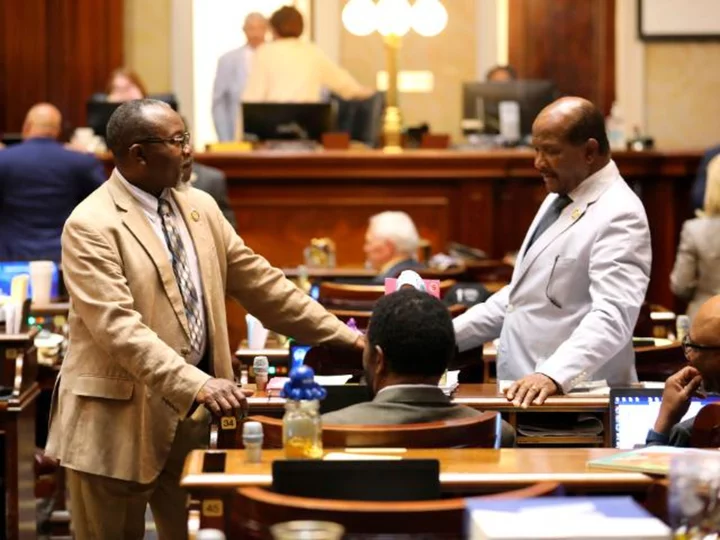
Abortion debate in South Carolina legislature stretches into second day
Lawmakers in South Carolina will reconvene Wednesday morning after debating for more than 12 hours on a bill that would ban most abortions as early as six weeks into pregnancy.
2023-05-17 21:22
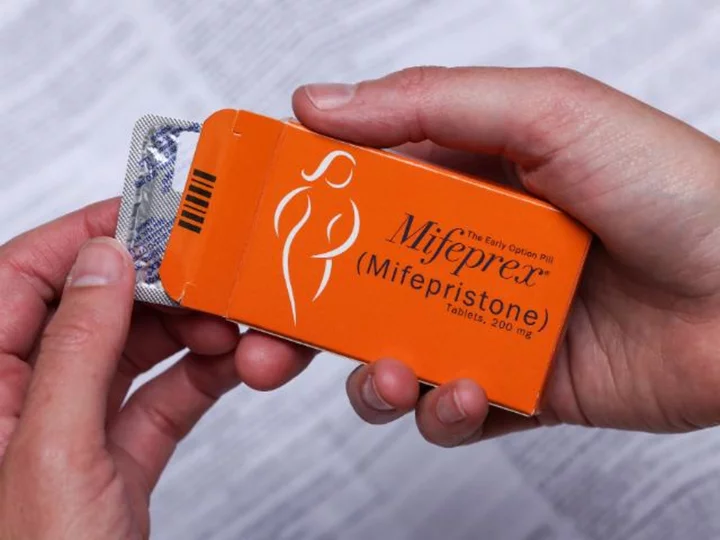
Abortion pill ban appeal to be heard by 3 GOP-nominated judges ahead of expected return to Supreme Court
An appeals court hearing Wednesday in the blockbuster abortion pill case will set the stage for how the Supreme Court will eventually approach the legal dispute, where anti-abortion activists are asking the courts to pull the main drug used in medication abortions off the market.
2023-05-17 17:24

Nebraska Republicans approve combined gender-affirming care ban and anti-abortion bill after epic filibuster
For three months, a group of Nebraska lawmakers have ground nearly all legislative business in the state to a halt, grabbing the nation’s attention with a remarkable filibuster to stifle a bill that would end gender-affirming care for young transgender people. Late Tuesday 16 May, Republican lawmakers broke through, advancing a bill that not only bans gender-affirming care for trans people under 19 years old but also tacks on an amendment to outlaw abortion at 10 weeks of pregnancy and hands the state’s GOP-appointed medical officer the authority to set the rules for affirming care for trans youth. Lawmakers approved the amended version of legislative bill 574 by a vote of 33-14. The measure will go to a final round of votes before it heads to the desk of Republican Governor Jim Pillen, who intends to sign it into law. Hundreds of protesters filled the capital in Lincoln, standing outside the doors and in the gallery above lawmakers while chanting “one more vote to save our lives”; only one senator would have had to defect from supporters of the bill to kill the legislation. The vote – on the 78th day of a 90-day session – followed a series of maneuvers that opponents argued were bending and breaking the rules of the state legislature to hammer through the legislation and avert the filibuster, which would allow opponents to occupy their allotted time to speak the bill to death. “What you are attempting to do today is the lowest of the absolute lows,” state Senator Machaela Cavanaugh, who spearheaded the filibuster, told Republican lawmakers. “You literally have to cheat at every moment of this debate in every possible way. … You are allowing it to happen,” she added. “You do literally have blood on your hands, and if you vote for it, you will have buckets.” State Senator Megan Hunt, the first openly LGBT+ member of the state legislature and the mother of a trans child, lambasted lawmakers for their “escape routes” from the capitol to avoid facing protesters. “If you can’t go out and face them, you are not worthy,” she said. “Your legacy is filth.” In a statement following the vote, Governor Jim Pillen called the bill “an important step” to “protect” the future of the state’s children. Opponents of the bill forcefully opposed the inclusion of an abortion ban in a bill targeting gender-affirming care, two wholly separate issues combined into one, “but you all don’t care,” Ms Cavanaugh told Republican lawmakers. “You don’t care about due process, you don’t care about the people of Nebraska,” she added. “All you care about is the governor.” Abortion rights advocates and transgender rights advocates have frequently underscored the fact that anti-abortion measures and legislation targeting LGBT+ people are driven by the same lawmakers and activist groups, relying on similar arguments to restrict access to healthcare, with measures that have dominated state capitals across the country over the last few years. Lawmakers initially were set to only debate the gender-affirming care bill, which already went through two of three rounds of debate and votes. But legislative rules prohibit amendments on a final round, and opponents of the bill planned to filibuster through all two hours of debate to continue to block it. Last month, the filibuster blocked a measure from anti-abortion lawmakers to ban abortion at roughly six weeks of pregnancy. Attaching another anti-abortion measure, this time at roughly 10 weeks, gave proponents of the bill a second chance of both advancing an anti-abortion law and the gender-affirming care ban, marrying two controversial measures to get to the necessary 33-vote threshold to advance. In February, Ms Cavanaugh vowed to “burn the session to the ground” if the ban on gender-affirming care advanced, launching an epic filibuster that blocked every bill until the measure was withdrawn or defeated. State Senator Kathleen Kauth, an Omaha Republican who proposed the bill targeting gender-affirming care, said the amended version would protect children from what she called a “social contagion.” “Kids deserve the right to grow up and not deal with this until they are adults and can make informed decisions,” said Ms Kauth, who did not mention the fact that such decisions are made with families and their doctors. The anti-abortion measure provides no exceptions for pregnancies with fatal fetal anomalies and does not explicitly protect doctors who perform abortions from criminal prosecution. “What is wrong with you?” said Ms Hunt, calling the combined bill a “desperate attempt to institute an abortion ban that is unpopular, unnecessary, and unsafe.” More than a dozen states, mostly in the US South, have severely restricted or effectively outlawed abortion in the year after the US Supreme Court struck down Roe v Wade, which affirmed a constitutional right to abortion access. Nebraska’s legislation also joins a nationwide campaign that has seen hundreds of bills aimed at LGBT+ people, particularly at young trans people, filed in nearly every state within the last two years. At least 15 states have enacted laws or policies banning gender-affirming care for young trans people, and more than a dozen others are considering similar measures. Court injunctions have blocked bans from going into effect in three states. More than half of all trans youth in the US between the ages of 13 and 17 are at risk of losing access to age-appropriate, medically necessary and potentially life-saving gender-affirming healthcare in their home state, according to the Human Rights Campaign. The onslaught of legislation and volatile political debate surrounding the bills have also negatively impacted the mental health of an overwhelming majority of young trans and nonbinary people, according to polling from The Trevor Project and Morning Consult. A separate survey from The Trevor Project found that 41 per cent of trans and nonbinary youth have seriously considered attempting suicide over the last year. Read More Inside the ‘mentally exhausting’ protest shutting down Nebraska’s anti-trans legislation Inside Montana’s ‘disturbing’ attack on trans kids and the campaign to silence lawmaker Zooey Zephyr Exclusive: Zooey Zephyr responds to her political silencing and Montana’s attacks on trans children: ‘I show up with my head held high’ Anti-abortion laws harm patients facing dangerous and life-threatening complications, report finds
2023-05-17 11:27
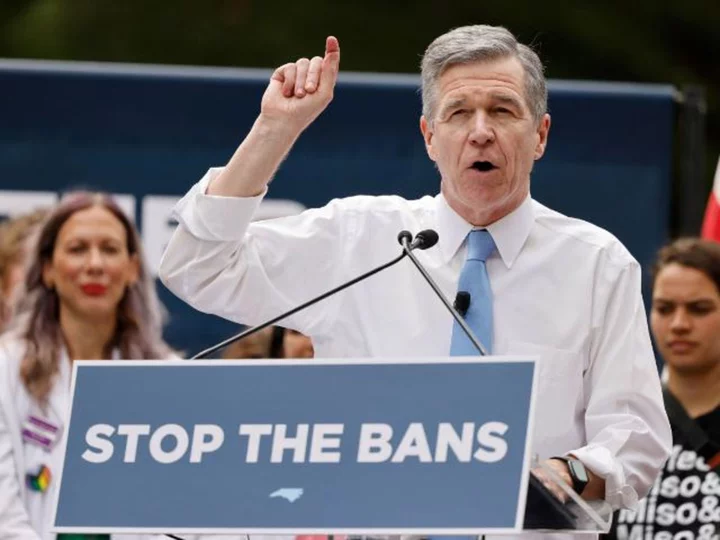
North Carolina Senate overrides governor's abortion ban veto
North Carolina's Republican-led Senate on Tuesday voted to override a veto from Democratic Gov. Roy Cooper over a bill that would ban most abortions after 12 weeks.
2023-05-17 05:51
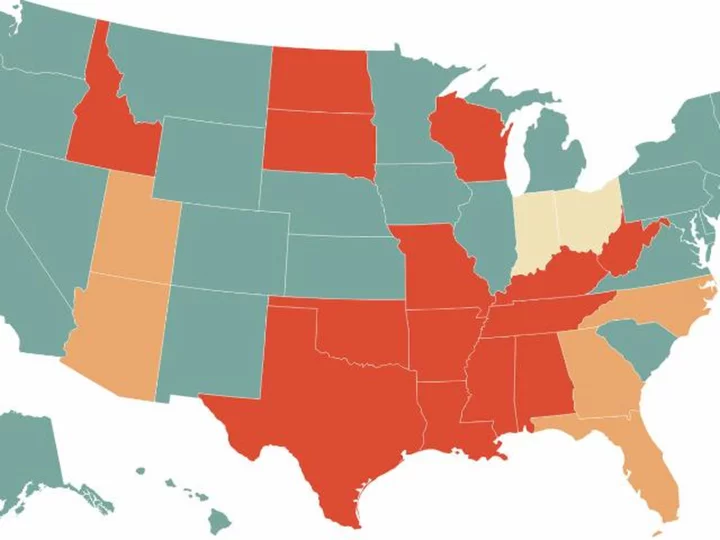
One vote to redraw the US abortion rights map
One vote can change everything, especially when things are close.
2023-05-16 06:28
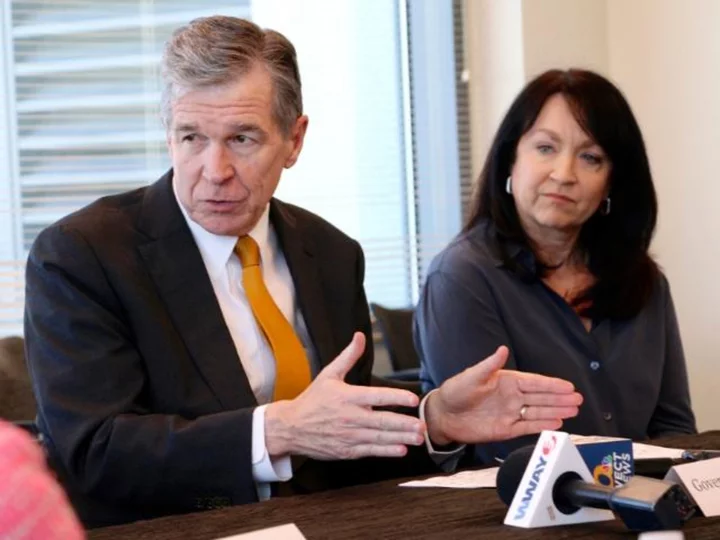
North Carolina Democratic governor vetoes abortion ban, setting up likely override vote
North Carolina Democratic Gov. Roy Cooper vetoed a controversial bill that would ban most abortions after 12 weeks, setting up a likely override effort from the state legislature, where Republicans have a supermajority.
2023-05-14 00:45
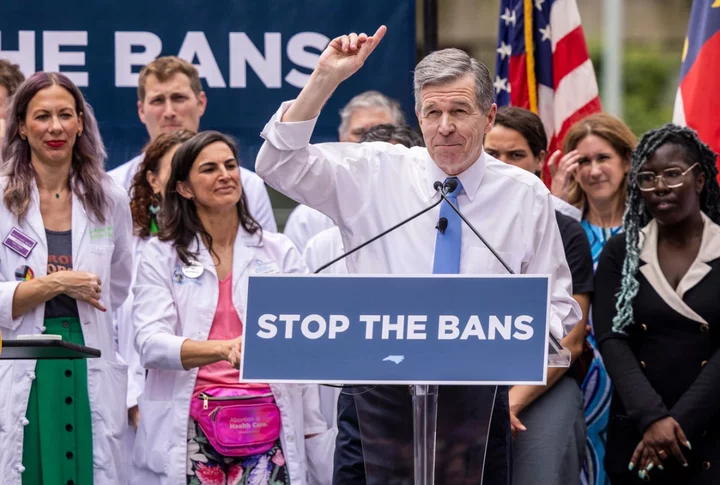
North Carolina governor vetoes 12-week abortion ban, launching Republican override showdown
In front of an exuberant crowd, North Carolina’s Democratic governor vetoed legislation Saturday that would have banned nearly all abortions in his state after 12 weeks of pregnancy. Hundreds of abortion-rights activists and voters watched on a plaza in the capital of Raleigh as Gov Roy Cooper affixed his veto stamp to the bill. The veto launches a major test for leaders of the GOP-controlled General Assembly to attempt to override Cooper’s veto after they recently gained veto-proof majorities in both chambers. The bill was the Republican response to last year’s US Supreme Court decision overturning Roe v Wade. "We’re going to have to kick it into an even higher gear when that veto stamp comes down,” Mr Cooper told the crowd. “If just one Republican in either the House or the Senate keeps a campaign promise to protect women’s reproductive health, we can stop this ban.” Andrea Long, a 42-year-old mother of three from Cary, said she was honored be part of an “electric” crowd on what she called a “historic day for freedom” in North Carolina. “I couldn’t stop crying tears joy seeing the governor hold up the veto stamp, but I know it’s an uphill battle to keep this momentum going,” Ms Long said. Mr Cooper, a strong abortion-rights supporter, had until Sunday night to act on the measure that tightens current state law, which bans most abortions after 20 weeks of pregnancy. Mr Cooper spent the week on the road talking to North Carolinians about the bill’s lesser-known impacts and urging them to apply pressure upon key Republican lawmakers who hesitated about further restrictions during campaigns for office last year. The legislation passed along party lines in the last week in the House and Senate. Republicans have pitched the measure as a middle-ground change to state abortion laws developed after months of private negotiations between House and Senate GOP members. It adds exceptions to the 12-week ban, extending the limit through 20 weeks for rape and incest and through 24 weeks for “life-limiting” fetal anomalies. But Mr Cooper has said repeatedly the details contained in the 47-page bill show that the measure isn’t a reasonable compromise and would instead greatly erode reproductive rights. He cites new obstacles for women to obtain abortions — such as requiring multiple in-person visits, additional paperwork to prove a patient has given their informed consent to an abortion and increased regulation of clinics providing the procedure. Mr Cooper and allies have said those changes in practice will shut down clinics that cannot afford major upgrades mandated by new licensing standards and make it nearly impossible for women who live in rural areas or work long hours to access abortion services. Compared to recent actions by Republican-controlled legislatures elsewhere, the broad prohibition after 12 weeks can be viewed as less onerous to those in other states where the procedure has been banned almost completely. But abortion-rights activists have argued that it’s more restrictive than meets the eye and will have far-reaching consequences. Since Roe was overturned, many patients traveling from more restrictive states have become dependent on North Carolina as a locale for abortions later in pregnancy. Republicans call the legislation pro-family and pro-child, pointing to at least $160m in spending contained within for maternal health services, foster and adoption care, contraceptive services and paid leave for teachers and state employees after the birth of a child. Mr Cooper has singled out four GOP legislators — three House members and one senator — whom he said made “campaign promises to protect women’s reproductive health.” Anti-abortion groups accused Cooper of trying to bully them. One of those House members is Rep Tricia Cotham of Mecklenburg County, who voted for the bill mere weeks after she switched from the Democratic Party to the GOP. The move gave Republicans a veto-proof supermajority if all of their legislators are present and voting. Ms Cotham has spoken out for abortion rights in the past and even earlier this year co-sponsored a bill to codify abortion protections into state law. Rep Ted Davis of Wilmington — another targeted legislator — was the only Republican absent from last week’s initial House vote. The Senate margin already became veto-proof after GOP gains last November. Mr Davis said last fall that he supported “what the law is in North Carolina right now,” which was a 20-week limit. Davis has declined to comment on the bill, but House Speaker Tim Moore said recently that Davis is a “yes” vote for an override. Read More Faith leaders speak out against ‘toxic’ Christian nationalist conference arriving at Trump’s Miami resort GOP boycott in Oregon threatens abortion, transgender bills and protesters' own political careers Louisiana Republicans refuse rape and incest exceptions to state’s sweeping anti-abortion law Ukraine war’s heaviest fight rages in east - follow live Charity boss speaks out over ‘traumatic’ encounter with royal aide
2023-05-14 00:45
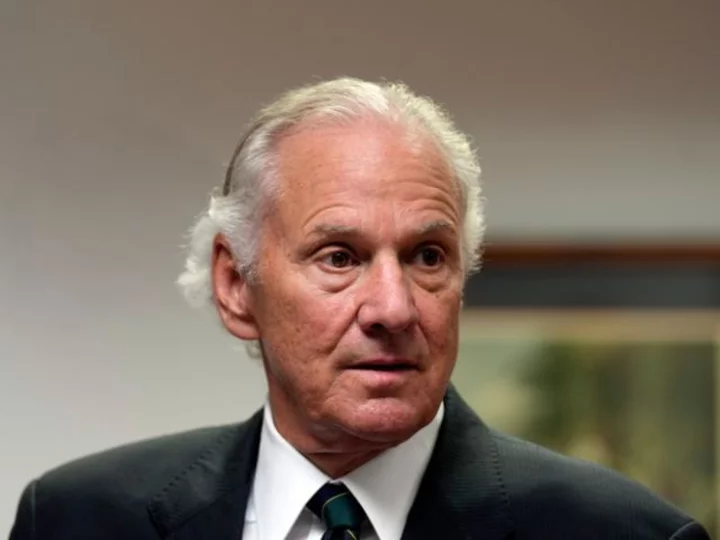
South Carolina governor calls state legislature back for 6-week abortion ban bill, other issues
South Carolina's Republican Gov. Henry McMaster has called the state legislature back for a special session Tuesday to continue to work on a bill that would ban most abortions as early as six weeks and other legislation.
2023-05-13 07:19

Former Pakistan PM Khan appears in court as supporters clash with police
ISLAMABAD (Reuters) -Former Pakistan Prime Minister Imran Khan arrived at an Islamabad court on Friday under heavy security cover as
2023-05-12 15:48
